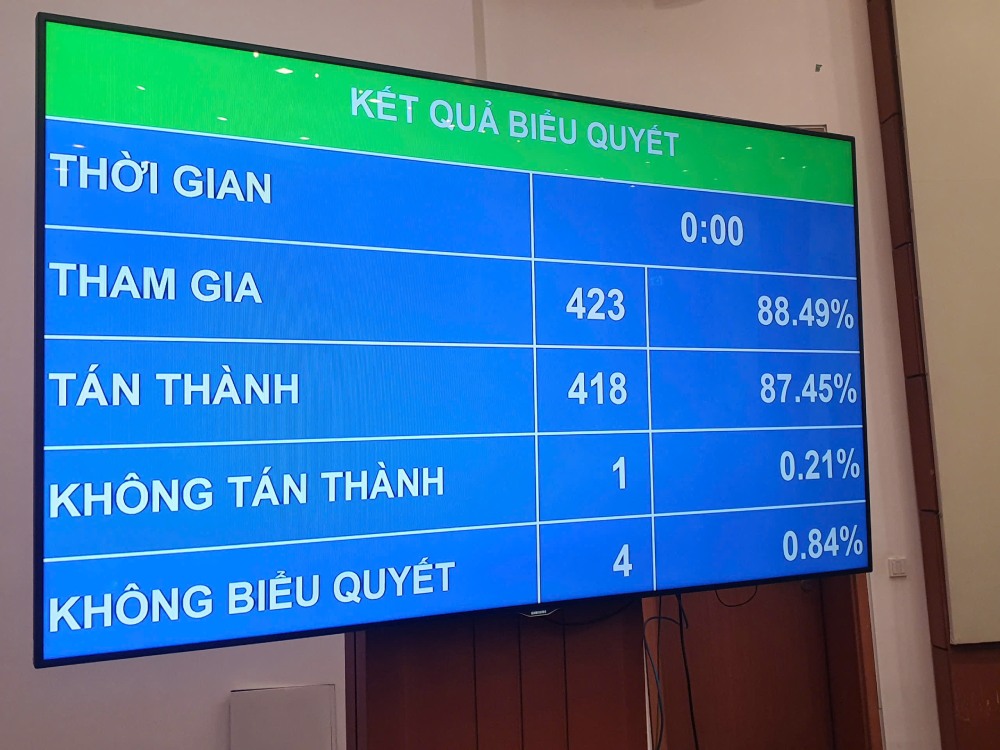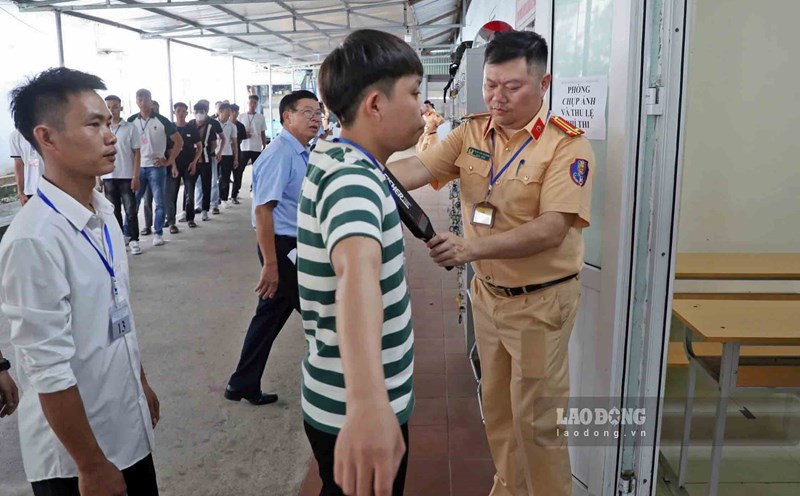On the morning of June 24, with 418/423 delegates participating in the vote, the National Assembly passed the Law on Cadres and Civil Servants (amended).
Before passing the law, authorized by the Government, Minister of Home Affairs Pham Thi Thanh Tra presented a summary report on the reception, revision and completion of the draft Law on Cadres and Civil Servants as amended.
Regarding the mechanism for managing and using cadres and civil servants, the draft law supplements and completes regulations to convert the method of managing cadres and civil servants according to job positions, taking job positions as the center.
Based on the requirements of the job position and the results, the products performing the task for recruitment, arrangement, use, evaluation, training, planning, and appointment of cadres and civil servants.

According to the minister, the bill also completes the mechanism for attracting high-quality human resources and policies for talented people in public service activities.
Accordingly, policies for 2 groups include: Group of subjects attracting to the public sector applied to high-quality human resources; and Group of subjects who are talented in public service activities.
3 forms of attracting high-quality human resources outside the public sector, including: Accepting civil servants; Signing contracts for outstanding, excellent entrepreneurs, lawyers, good lawyers, experts, scientists performing one or a number of tasks of leadership, management positions and signing contracts for high-quality human resources to perform one or a number of professional and technical tasks.
The Minister of Home Affairs also informed that the draft law also violates regulations on principles, conditions for registration for civil servant recruitment and methods, and recruitment authority to innovate civil servant recruitment work in the direction that the selected person must immediately meet the requirements of the job position, after being recruited, be classified in the corresponding civil servant rank; simplify administrative procedures.
Another additional and revised content raised by the head of the internal affairs sector is the regulations on job positions and civil servant ranks to attract high-quality human resources from the private sector, encouraging civil servants to develop according to professional and technical paths without necessarily having to appoint leadership and management positions and titles.
The draft law also revises and completes the contents of civil servant assessment, clarifying the principles, authority, content, and methods of assessment and classification of civil servant quality based on regular, continuous, multi-dimensional monitoring and assessment with specific criteria associated with progress, quantity, and quality of results and products according to job position.
In particular, cadres and civil servants are allowed to use the evaluation results to implement rewards, additional income regimes, bonuses or consider being arranged to lower job positions or to be fired to screen for those who do not meet the requirements of the tasks out of the apparatus.










